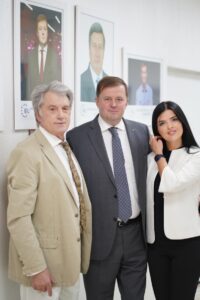
Viktor Yushchenko visited International European University on the eve of the 30th anniversary of Ukraine’s Independence. Students and lecturers had a unique opportunity to talk to the living legend, dip into history and get answers to relevant questions.
Alla Navolokina, a co-founder and vice-rector for educational and scientific work and international relations, introduced the honored guest to the university team, as well as to Franz-Volodymyr von Habsburg-Lothringen, President of International European University, Anatolii Tolstoukhov, the head of the University Development Council, and Mykhailo Polianchych, a member of the University Development Council.

Alla Navolokina stressed that the meeting with Mr. Yushchenko brought together the audience motivated to knowledge required for further professional activities. She also introduced the teaching staff, student population and partners of the university.
As part of his speech, Viktor Yushchenko shared memories of his life journey, stages of professional growth, scientific achievements and plans.
“Education is a key to Ukraine’s prosperity: those who win education win the future,” Mr. Yushchenko said.
The third President of Ukraine told the teaching staff and the young generation about challenges faced by Ukraine at the current development stage.

“Nowadays, your University is a new powerful complex. I believe that great traditions will be continued by a new generation whom I’m addressing today. You’re teaching true citizens of Ukraine,” Viktor Yushchenko stated.
To express acknowledgement, respect and recognition, Alla Navolokina presented author’s painting to the Ex-President. Viktor Yushchenko highly appreciates art. He confessed to taking paints, brushes, canvas and drawing.
“A talented person is all-around talented… These words are referred to an incredible individual and wonderful vice-rector of International European University,” Viktor Yushchenko mentioned.
At the end of the meeting, the honored guest congratulated International European University on the 30th anniversary of Ukraine’s Independence and wished prosperity and talented graduates to become worthy representatives of the Ukrainian nation. By the way, International European University can boast solid international relations encouraging the implementation of major projects.
Impressed with a university atmosphere and warm welcome, the third President of Ukraine left unique feedback and author’s drawing in the IEU’s comments book.
ALLA NAVOLOKINA, FRANZ_VLADIMIR_FON_GABSBURG_LOTHRINGEN, IEU
The situation of reservoir pollution is critical in Ukraine!
The Dnieper River is annually contaminated with tons of garbage and emissions from different enterprises. Most people know about this problem but keep throwing away garbage and polluting our wonderful river.
There are a lot of beach areas near the river and waste affects our health. Together we can not only clean the riverfront but also get out trash of the river on canoes in the sports rhythm.

Our journalists talked to the organizers of the action, SD Platform non-governmental organization, and discovered all the details.
“Sometimes we see our Dnieper river through rose-colored spectacles. But putting them off, we can notice how much dirt, plastics and strange things are in the river. We have gathered activists who care about its destiny. We made the Dnieper cleaner on our own,” Kateryna Davydkova, a coordinator of the environmental sector at SD Platform, said.
Plastics, bottles, toys and even stolen stuff are just a brief list of the “treasure” found by activists in the Dnieper. This garbage was left by common vacationers who don’t want to keep the Dnieper clean.
“We found a bag with car and apartment keys, a purse, personal documents and bank cards. Without losing any time, we found the owner of lost things via Facebook and returned them the next day. The things have been in the water for more than a year. Thus, the environmental action is referred not just to reservoir rescue, but also to good deeds like in this case,” Said Mechkour, a foreign student of International European University, added.
Be eco-friendly conscious! If you like resting near the Dnieper, throw away your trash in a garbage can so that other activists won’t find your “treasure”.
Let’s make our river cleaner by small but progressive steps!
ALLA NAVOLOKINA, ECOLOGY, FRANZ_VLADIMIR_FON_GABSBURG_LOTHRINGEN, IEU
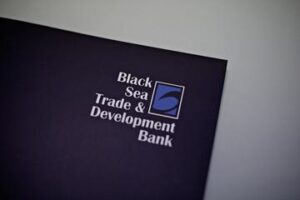
The Black Sea Trade and Development Bank (BSTDB, Thessaloniki) intends to achieve an annual increase in the value of its portfolio by 5-7% in 2021-2030 and increase its volume to EUR 4 billion from the current approximately EUR 2.3 billion, President of the bank Dmitry Pankin told reporters at the conference in Thessaloniki (Greece), which takes place on August 27-28.
“In June 2021, the bank approved a long-term strategy for 2021-2030. Among the goals are signing 30-35 projects per year, increasing commitments (on projects) for the year to EUR 1.7 billion from the current EUR 800 million, in order to achieve EUR 12 billion,” Pankin said.
The President also said that in the face of lower interest rates and increased availability of borrowed funds in most markets where the bank operates, the BSTDB also decided to strengthen its potential for generating projects and subsequently organizing their financing and become a cheaper competitor to leading consulting companies and investment banks.
“Traditionally, development banks have offered long-term cheap financing, but now everyone is ready to provide it. Therefore, our 10-year strategy involves reorienting the bank to a project organizer, a provider of feasibility studies and risk calculation,” Pankin explained.
He added that, unlike consulting companies, BSTDB is ready to take risks in such projects.
In connection with this new strategy, the bank will hire specialists of appropriate qualifications, as well as people for the potential sale of part of the portfolio in order to free up capital for new operating activities, which will also become new in the work of the BSTDB, the president of the bank said. According to him, the BSTDB intends to become more active in marketing and in the search for new projects, whereas clients themselves come to him more often today.
Talking about other institutional goals of the new strategy, Pankin said that the bank would continue to maintain a diversified and balanced portfolio of operations with a public sector share of about 30%, more actively connect to the fast-growing class of “green” investors and remain open to new shareholders – sovereign states and development institutions.
The BSTDB President recalled that member states of the Black Sea Economic Cooperation Organization (BSEC) may become the bank’s shareholders. Since 2014, Serbia has become a member of the BSEC, which has not yet participated in the bank, and since 2021 – Macedonia. According to Pankin, discussions and negotiations are underway with them, but they are still far from over.
Within the framework of the medium-term strategy for 2019-2022, the BSTDB puts an aim of an annual growth of more than 12% and exceeding EUR 2.5 billion of the portfolio at the end of the period, promoting the export of goods and services with a focus on small and medium-sized enterprises, with a special focus on the real economy and infrastructure, including energy, transport and communal infrastructure.
In 2020, the bank signed projects for EUR 624 million, and allocated EUR 785 million for them and for previous projects, increasing the portfolio by 12%. Net profit increased to EUR 14.2 million from EUR 13.7 million in 2019, and the share of bad loans in the bank’s balance sheet is 0.2%.
BSTDB is an international organization uniting 11 states of the Black Sea Economic Cooperation organization. The shares of Turkey, Russia and Greece in the capital are 16.5% each, Romania – 14%, Ukraine and Bulgaria – 13.5% each, Azerbaijan – 5%, Albania – 2%, Armenia – 1%, Georgia and Moldova – each 0.5%. The bank aims to promote economic cooperation, trade and cooperation of the countries of the Black Sea region. The bank’s paid up authorized capital is EUR 0.69 billion, and its long-term credit ratings are “A-” from S&P and “A2” from Moody’s.
The Bank provides medium and long-term corporate loans for up to 10 years, and for project financing – up to 15 years. In the case of the private sector, the volume of a loan can be up to EUR 90 million, for the public sector – EUR 120 million.
At the end of 2020, the largest volume of BSTDB projects was in Turkey – 23.14%, followed by Greece – 18.38% and Russia – 15.6%, while Ukraine accounted for 11.62%, Bulgaria – 7.58%, and Romania – 5.86%.
They were followed by Azerbaijan – 5.09%, Georgia – 4.88%, Armenia – 4.4%, Moldova – 1.77%, and Albania – 1.67%.
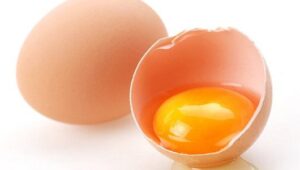
The agro-industrial group of companies Ovostar Union, one of the leading producers of eggs and egg products in Ukraine, in January-June 2021 received $1.62 million in net profit, which is 34% less than in the same period in 2020, its EBITDA decreased by 27% – up to $3.5 million.
According to the company’s report, published on the website of the Warsaw Stock Exchange on Friday evening, Ovostar’s revenue in the first half of 2021 increased by 37.6% to $61.42 million, its gross profit decreased by 13.8% to $6.24 million, operating profit doubled to $1.37 million.
“Since the third quarter of 2020, the Ukrainian egg industry has been decreasing in terms of the total number of laying hens and production volumes. A poor harvest last year led to an increase in the prices of the main components of the feed mixture, which subsequently increased the cost of production. This, along with the very unfavorable dynamics of the selling prices for eggs, caused huge losses to the industry. Many egg producers are cutting their herds,” the report says.
The report indicates that the company’s net debt as of June 30, 2021 increased by 20% compared to the same date last year, to $8.9 million, while the total volume of new or refinanced loans amounted to about $4.0 million. Long-term debt of Ovostar’s liabilities as of the indicated date increased by 43.2% – to $7.15 million, and the current ones – by 47.1%, to $23.86 million.
The total amount of the company’s assets as of June 30, 2021 increased by 8% compared to the same date in 2020 – to $141.2 million, mainly due to an increase in the fair value of Ovostar’s biological assets.
“Against the backdrop of the COVID-19 pandemic and the general unfavorable situation in the agro-industrial complex, it was decided to focus on operational efficiency and suspend the investment program until further notice. Thus, in the reporting period, only minor investments were made in production capacity and infrastructure,” the message says.
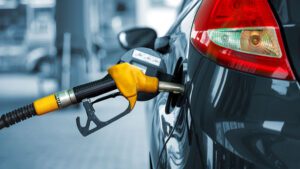
Average retail prices for gasoline in Ukraine in the period from August 20 to August 28 fell by UAH 0.40-0.50 per liter, according to the data of the A-95consulting group (Kyiv).
In particular, the prices for gasoline grade A-92 fell by 1.4% (by UAH 0.42), to UAH 28.89 per liter, A-95 – by 1.7% (UAH by 0.51), to UAH 29.71 per liter, premium A-95 – by 1.6% (by UAH 0.51), to UAH 31.62 per liter.
In addition, the average price of diesel fuel for the week fell by 1% (by UAH 0.29), to UAH 27.93 per liter, while the price of LPG grew by 0.1% (by UAH 0.02), to UAH 17.48 per liter.
As reported, the Ministry of Economy of Ukraine on August 26 announced the cost of gasoline to be UAH 25.53 per liter and diesel fuel – UAH 21.11 per liter, from which the price caps for fuel at filling stations are calculated at the end of August and beginning of September.
Taking into account the trade margins, the price cap for “ordinary” gasoline for its sale through the filling station network shall not exceed UAH 30.53 per liter, for “ordinary” diesel fuel – UAH 28.11 per liter. Compared to the middle of August, the average price for gasoline fell by UAH 0.53 per liter, for diesel fuel – by UAH 1.14 per liter.
The setting of the price caps does not include “branded premium fuel” with improved quality indicators.
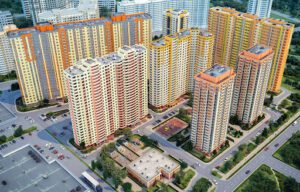
The area of newly completed housing in Ukraine in January-June 2021 grew by 29.5% compared to the same period in 2020, to 4.797 million square meters, the State Statistics Service has reported.
At the same time, the data are given taking into account the housing that went live in accordance with the temporary procedure for allowing houses built without permission to perform construction work go live.
According to the report, since the beginning of the year, 3.283 million square meters have joined the market in cities (68.4% of the total), and 1.514 million square meters in rural areas. At the same time, 41.8% of the total volume of housing was single-family houses, 57.8% were houses with two or more apartments, and 0.4% was dormitories.
In general, during the reporting period, 62,300 new apartments were competed: 47,600 apartments in urban areas and 14,600 apartments in rural areas.
The average apartment area was 76.6 square meter, while in single-family houses it was 157.1 square meters, in multi-apartment buildings it was 55.9 square meters.
In Kyiv city, Lviv, Kharkiv, Odesa and Ivano-Frankovsk regions, according to the results of the first quarter, 54.6% of the total housing volume went live. Moreover, in Kyiv city it was 512,700 square meters (10.7%).
According to statistics, a decrease in the area of newly completed housing was recorded in Zaporizhia, Ivano-Frankivsk and Luhansk regions.